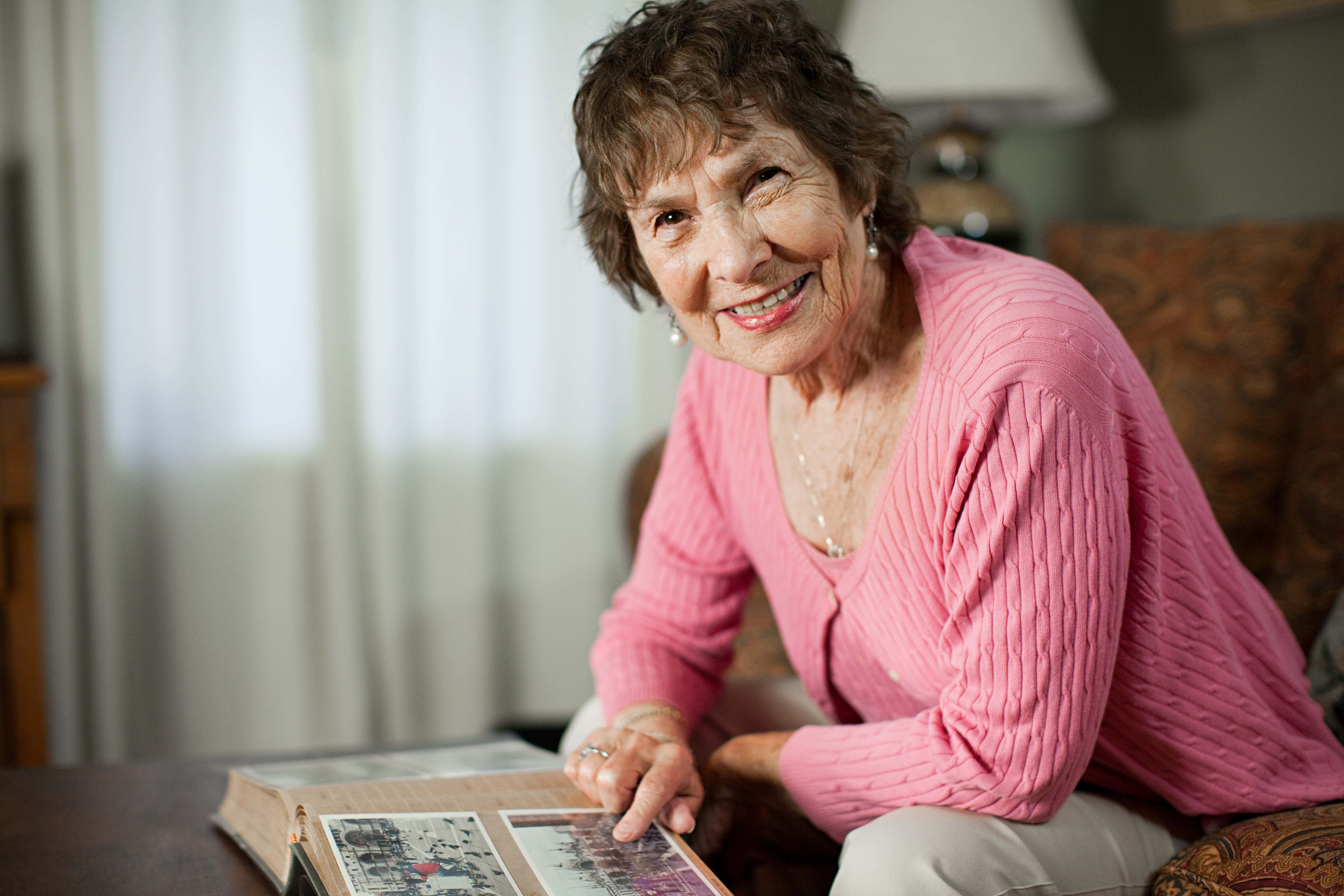Lung Cancer

When you’re experiencing a persistent cough, breathlessness or chest pain, you may think of a number of lung conditions before even considering lung cancer, which makes it such a difficult disease to diagnose at an early stage.1 Lung cancer often goes undetected for far too long, despite it being one of the most common and serious cancers that have severe physical, psychological and social consequences.1

Lung cancer is one of the most common types of cancer, especially among smokers. Tobacco use is the single biggest risk factor for lung cancer. Lung cancer risk is 15-to 30-fold higher in long-term smokers compared with those who have never smoked.2
That said, there are also other factors linked to lung cancer risk, including occupational exposure to heavy metals, gases and other materials such as asbestos; pollution; some medical treatments, cancer history, certain diseases or disorders; and genetics.3
The cancer can start in the windpipe, main airways or lungs. It develops when there is an abnormal growth of cells in one or both lungs that can evolve into a tumour and spread to the lymph nodes or other organs in the body.4
There are two major types of lung cancer:5
Small Cell Lung Cancer (SCLC) | Non-Small Cell Lung Cancer (NSCLC) |
|---|---|
Small Cell Lung Cancer (SCLC) A less common (10-15% of all lung cancers) but more aggressive form that grows and spreads fast. | Non-Small Cell Lung Cancer (NSCLC) The most common form (80-85% of all lung cancers),6 but less aggressive than SCLC.7 |
What are the symptoms of Lung Cancer?
There are usually no symptoms in the early stages of lung cancer,8 which makes it very difficult to self-detect the disease while it is small and hasn’t yet spread. This is problematic because an early diagnosis significantly increases the chances of the cancer being treated successfully.8
Symptoms9 of lung cancer tend to appear only when the cancer is already at an advanced stage:
- A persistent cough or hoarse voice for three weeks or more10
- Change in a cough you’ve had for a long time11
- Coughing up blood12
- Chest or shoulder pain that does not get better12
- A chest infection that does not get better, or repeated chest infections10
- Loss of appetite and unexplained weight loss12
- Fatigue12
- Breathlessness12
Since these signs can easily be mistaken for other conditions, such as a lung infection, a common cold or long-term effects from smoking,13 you should see a doctor as soon as you experience any of these symptoms or any other changes in your health.
There is no simple test to determine whether you have lung cancer. Your doctor will first perform diagnostic tests, which may include an X-ray, computed tomography (CT) scan, lung function test and blood tests.14 If your doctor suspects you may have lung cancer, further tests will be needed to confirm the diagnosis, usually in the form of a lung biopsy, or with other samples such as fluid from your lungs.14
Once lung cancer is conclusively diagnosed, doctors will work out whether the cancer has spread with a CT, positron emission tomography (PET), magnetic resonance imaging (MRI) or bone scan. This will also help them to stage the lung cancer and form a prognosis.
The stages of lung cancer are:15
Stages I and II: early stages | Stage III: locally advanced | Stage IV: advanced or metastatic |
|---|---|---|
Stages I and II: early stages The cancer is small and remains in the lungs. | Stage III: locally advanced The cancer has grown and may have spread to lymph nodes and surrounding tissue, but not to other organs. | Stage IV: advanced or metastatic The cancer has spread outside the lungs into other areas of the body. |
How common is Lung Cancer?
Lung cancer is one of the most common cancers. Every year, more than 310,000 adults are diagnosed in Europe.16 As with many cancers, the cause is still unknown, but a number of factors can increase the risk of developing lung cancer.17
While non-smokers can also develop lung cancer, smoking is linked to more than 80% of cases.16 It is estimated that less than 40% of all cases are current smokers, 45% are former smokers and 10% to 15% have never smoked.16
Other risk factors include:16
- Age: lung cancer is more prevalent among people over 65 years of age
- Family history of lung cancer
- Air pollution
- Exposure to radon and asbestos17
- Exposure to other cancer-causing agents in the workplace17
- Previous radiation therapy to the lungs17
Treatment and Care
As with all cancers, a straightforward cure for lung cancer has not yet been found, though numerous trials are underway hopeful to beat this life-altering disease.
To plan the best treatment, a team of health professionals will work together to determine the type, size and location, and stage of the cancer, as well as your overall health.18 Based on that information, a treatment plan will be suggested.
The most common treatment options include:18
- Surgery
- Radiotherapy
- Chemotherapy
- Immunotherapy
- Targeted therapies (for non-small-cell lung cancer)
Small-cell lung cancer is commonly treated with chemotherapy, sometimes in combination with radiotherapy, which can help to prolong and relieve symptoms. If the cancer has not spread, surgery may be considered as well.18
While there is no sure way of preventing lung cancer, you can reduce your risk by taking certain actions. If you are a non-smoker, try to avoid second-hand smoke as much as possible. If you do smoke, it is strongly advised to quit. Quitting can reduce the risk of lung cancer by 40-70%19, even if you have been smoking for years. Even cutting back 50% on the number of cigarettes smoked per day can reduce the risk of lung cancer significantly.20 Speak to your doctor if you need any support quitting. Have the radon levels at your home checked, especially when you live in an area where they can be high and take all necessary precautions if you are exposed to toxic chemicals at work. Speak to your doctor for advice on how to protect yourself.21
Finally, a balanced low-fat, high-fibre diet with plenty of fruit, vegetables, and whole grains, as well as regular exercise can help reduce the risk of developing lung cancer and other types of cancer.22
Living with Lung Cancer
Coping with complex emotions such as shock, anxiety, anger, disbelief and dejection when diagnosed with lung cancer is normal. Lung cancer changes your life, regardless of the severity and outcome.
Lung cancer can take both a physical and emotional toll. Symptoms of lung cancer and the effects of its treatments such as fatigue, pain and breathlessness can severely impact your everyday life. You might be unable to follow your daily routines, meet with friends or go to work. This in turn can affect your mental state. Cancer patients commonly pinpoint loss of independence, lifestyle and relationship changes, and job and financial worries as having emotional and mental consequences. Feelings of sadness, loneliness and even depression are therefore not uncommon.23
Be open about how you feel and how lung cancer is affecting your life. Talk to friends and family, or confide in your doctor who can advise you on patient support groups, trained counsellors and social services.
Self-care is also important. Eat well, keep active, get enough sleep and make time for the things you enjoy. It can also help to feel in control by learning about your cancer and its treatments, which can guide you in making decisions that are right for you.Questions to Ask Your Doctor
The list below includes example questions to help start a conversation with your health care provider. There may be other relevant questions based on your symptoms, stage, and medical history that are not listed here.
- What type of lung cancer do I have, how advanced is my disease, and what can I expect?
- What are the treatment options? How much time do I have to decide?
- How long will the treatment take?
- What are the possible side effects?
- What happens if the treatment doesn’t work?
- How will this affect my everyday life?
- What symptoms or side effects should I tell you about right away?
- Are there any clinical trials I can join?
- Can you suggest a mental health professional I can see if I start to feel overwhelmed, depressed, or distressed?
- Can I be referred to patient support groups? Can I get help to quit smoking?
- …
Janssen & Lung Cancer
For us, lung cancer is a priority. We have launched an initiative that strives to find better ways to screen, prevent and intercept lung cancer.24 Collaboration is key to change the trajectory of this disease and change the lives of so many people, which is why we have set up networks across the globe with hospitals, academic centres, and other collaborators.
We are also determined to make medical interventions smarter, less invasive and personalised through digital innovation, changing the standard of care for patients.Glossary
- Asymptomatic: showing no symptoms of a disease.
- Dyspnoea: shortness of breath.
- Dysphagia: difficulty or pain swallowing.
- Immunotherapy: a group of medicines that stimulate the immune system to target and destroy cancer cells.
- Incidence: the proportion or rate of persons in a population who develop a condition during a particular time period.
- Prevalence: the proportion of persons in a population who have a condition at or during a particular time period.
- Lung Nodules: a small abnormal area in the lung that can be cancerous or non-cancerous.
- Remission: the disappearance of cancer cells and symptoms.
- Targeted therapies: medicines designed to slow down the growth of non-small-cell lung cancer, only suitable for people who have certain proteins in their cancer cells.
- Radon: a naturally occurring radioactive gas that can cause lung cancer. It has no smell, colour or taste, and comes from the radioactive decay of radium, which is present in small amounts in rocks and earth. It is present in all air, both indoor and outdoor, but will accumulate in higher concentrations in confined and poorly ventilated spaces, such as attics, basements, sheds, mines and caves.21
Patient advocacy groups and external sources
This website is developed exclusively by Janssen Pharmaceutica NV. Please note that the patient advocacy groups, and external sources listed below are an additional and independent source of information you might find useful. These groups and sources were not involved in the creation of this website and do not endorse its content in any way.

Lung Cancer Europe advocates policies to improve lung cancer prevention, early detection, treatment and care in Europe

An initiative from the European Lung Foundation (ELF) and European Respiratory Society (ERS) that offers guidance to patients from patients on lung conditions.

November is Lung Cancer Awareness Month, dedicated to raising awareness about the disease, its risk factors and its effect on people with lung cancer.